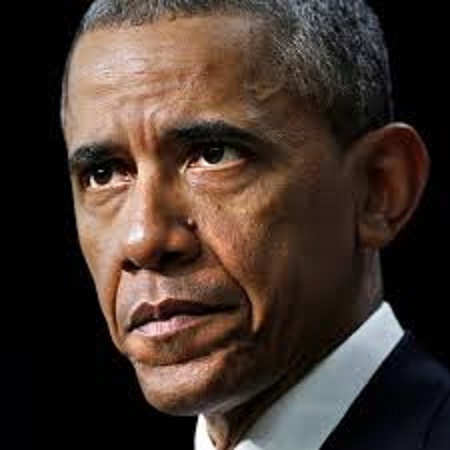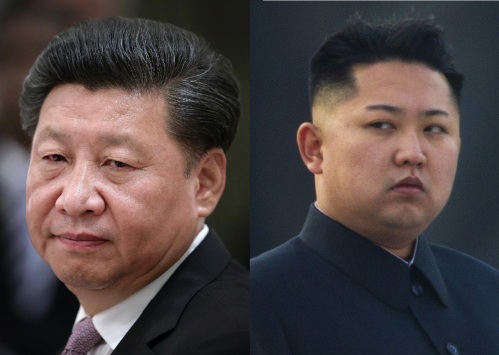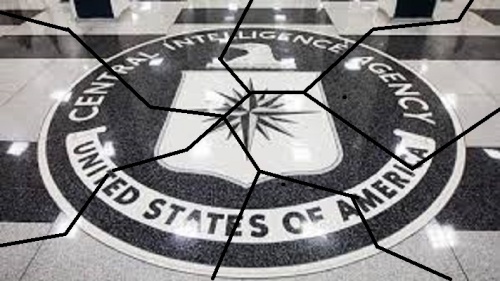Note: Michael Anton is Deputy Assistant to the President for Strategic Communications, National Security Council. This article was prepared before the author accepted his current position. The views here reflect only those of the author. They do not represent the views of the Trump administration, the National Security Advisor, or the U.S. government.
<>
In a year of upset political apple carts, none were rattled harder, or lost more fruit, than traditional notions of American foreign policy. Donald Trump shocked a lot of people over a lot of issues. But no anti-Trump Republican economists orchestrated elaborate letters, with hundreds of signatories, to swear they would never serve in a Trump administration. No dissident Republican trade negotiators ostentatiously switched parties and vowed to support Trump’s opponent. Nor did Republican immigration experts flood the cable networks to renounce and denounce their party’s nominee.
Yet all of the above—and more—happened with respect to foreign policy. The specific reasons why Republican foreign policy operatives chose to denounce Trump’s plans may never be clear. We shall instead explore what we think they had in mind.
Nearly all opponents of President Trump’s foreign policy, from conservatives and Republicans to liberals and Democrats, claim to speak up for the “liberal international order.” A word may have been different here or there (e.g., “world order”) but the basic charge was always the same. Whether voiced by Fareed Zakaria and Yascha Mounk on the left, Walter Russell Mead in the center, Eliot Cohen and Robert Zoellick on the right, or Robert Kagan on the once-right-now-left, the consensus was clear: Trump threatens the international liberal order.
Guarding the Liberal International Order
Sticklers may notice two problems with this argument. First, while a few critics hung their anti-Trumpism on the peg of “temperament,” most preferred to charge Trump with policy recklessness—yet then went on to insist that Trump had no policies at all. We shall leave this objection aside as excusable political hyperbole.
The second problem is much greater: why is it that no one quite got around to saying what, exactly, the “liberal international order” is? One must, therefore, infer a definition from their complaints, and I shall try to do so fairly, the goal being to understand these writers as they understand themselves.
In ideological terms, the liberal international order (hereafter “LIO”) is the post–World War II consensus among the victorious great powers (excluding the Soviet Union, and later mainland China) on (in descending order of consensus) security, trade, and internal political arrangements. In more concrete terms, it is the constellation of institutions built to further that consensus: the United Nations, NATO, the European Union, and other, later entrants such as the World Bank.
Celebrants of the LIO seem to think that no explanation of its utility or value is necessary. Affirmation is enough because its goodness is self-evident. Trump’s implicit questioning of that order, therefore, sounds blasphemous. And clerics tend to confront blasphemy not with patient clarification but with strident denunciation.
That the foreign policy establishment of the United States is a kind of priesthood is not necessarily a bad thing. Priests can be useful. Aristotle identifies the priestly function as one of six elements vital to his best regime. More to the point, in every regime, strategy is determined and diplomacy is conducted by an elite. Thinkers and doers from Plato to Machiavelli to the American Founders saw no way around this reality and no reason to find it unjust or worrisome.
Yet the arrangement becomes a problem when the elite forgets or at least can no longer articulate the original rationale for the policies it still advocates. That is the situation American foreign policy has faced since the end of the Cold War, if not before—a situation Trump pointed out in often pungent language.
With respect to foreign policy, the restatement of seemingly obvious truths is salutary for two fundamental reasons. First, many Americans do not necessarily know what our interests or strategy are. Restating the basics is often the only way to make clear certain truths that may not possess inherent clarity, and to connect perfectly clear truths with other, more obscure truths.
Second, the priesthood sometimes protects its status by muddying the simple and clear, and pretending that the complex is clear and obvious—but only to themselves. Restating key elements of foreign policy is therefore essential to wider participation in political discourse. The foreign policy priesthood looks down on such restatements as “simplistic.” But it is important to understand that they will look down on any heterodox analysis—simplistic or complex, old or new, factually detailed or broad-brush—and they will dismiss these analyses in seemingly contradictory terms. This one is too detailed, stuck “in the weeds,” and misses the forest for the trees, while that one is too vague and high-level and lacks specifics. The only common thread is that the priesthood is protecting its guild.
And make no mistake: the foreign policy establishment is very much a guild. This fact is true in the prosaic sense. The priesthood operates and draws income from the LIO’s constituent institutions. It’s also true in the higher sense that the language and ideas of the LIO are the intellectual frameworks of all foreign policy discussion—the water in which fish do not know they swim.
The Trifocal Lens of American Foreign Policy
The original rationale for the LIO was the same as the original rationale for every major successful framework for American foreign policy. Those who advocated for it and built it did so because they thought it would best protect our security and interests at that time. What was different—and unprecedented—is that in 1945, America found itself not just a major economic power or even a military great power, but a superpower. This was not a position the American elite who fought and won the Second World War sought. It was an unexpected, and to many unwelcome, fruit of victory. Soldiers wanted to go home. Families wanted their men back. Civilians wanted an end to privation and sacrifice. The nation as a whole wanted to lay down a burden that most had not wanted to take up. To speak anachronistically, they wanted a “return to normalcy.”
But those Walter Isaacson and Evan Thomas called “Wise Men” believed that the question—What now?—required an unprecedented answer because of the unprecedented situation. If isolationism had served American interests in the past, they calculated, it would not do so in the foreseeable future. But to fully understand their logic, one must understand that they saw American interests in terms essentially no different from the views of the American Founders.
Once, as a young man looking to get a rise out of people, I stated that America’s proper foreign policy objectives were to avoid becoming poor, contemptible, or dead. As an older man with experience in the national security bureaucracy, I naturally blush at that recollection and today recognize the advantages of stating things in the positive: America’s national interests are to pursue and promote prosperity, prestige, and peace. This formulation may seem simplistic, but these obvious goals have too often been forgotten by the defenders of the status quo, who have confused means for ends.
More specifically, America should seek to further its economic interests as a commercial republic and to maintain and increase the American people’s standard of living and the American nation’s aggregate wealth. This, in turn, enables us to do great things—such as building massive and complex infrastructure projects, maintaining a strong and cutting-edge military, putting a man on the moon, and so forth.
We should also seek to maintain our standing in the world, our alliances with friends, and the fear and respect of enemies, to make possible or at least easier whatever it is that we want to do in the world. Contempt and respect are abstract and insubstantial but highly relevant to the pursuit of the other two goals. Avoiding poverty, getting and staying rich, and avoiding death by deterring or, if necessary, winning wars, require or are greatly aided by high standing in the eyes of other nations.
Peace
Though here stated last, the first priority of every state is to protect its own safety and the safety of its citizens. Traditionally or historically, this has meant preventing invasion, conquest, enslavement, even destruction, or else at lesser level raids, sackings, and the like. Today one would have to add terrorism and nuclear attack—categories, alas, perhaps not exclusive.
Unusually, the United States, for much of its history, has not faced existential threats. Raids and sackings were common on the frontier, but did not threaten the nation’s very life. Since expelling the British, U.S. territory has been invaded only once, in 1814, and raided once, in 1916. Since then, we have suffered two mass casualty attacks on American territory. Not bad for 240 years.
The reason for this impressive record is, of course, our enviable location: protected by two vast oceans and sharing borders with only two nations, both mostly peaceful (Pancho Villa and drug cartels aside).
For Americans, it is thus a much simpler matter to avoid death than it is for most other nations. Yet we should not be too confident on this score. Invasion by a hostile power, while extremely improbable, is not impossible. It has been contemplated and planned before, though the practicality of occupying the country is probably out of reach of any power today. Thankfully, our circumstances insulate us from many of the consequences of strategic folly.
Death, then, is far more likely to come at the hands of terrorists, or perhaps a nuclear attack by a foreign power, presumably the result of tensions arising from some other crisis somewhere ratcheting out of control.
Prestige
Contempt and its opposite, prestige, are elusive qualities in international politics. Yet everyone knows them when they see them. When the Iranians seized ten American sailors in January 2016 and held them hostage for propaganda photos, those sailors—and our entire country—were being treated with contempt. Being insulted like this and passively accepting the insult increases the contempt felt for us by other nations. This was of course but a small example. A graver example is the contempt engendered by fighting two of the world’s weakest and poorest countries for a decade and not being able to win—and, worse, winning and then casually throwing the victory away. Pointless apologies, gratuitous insults to allies and friends, failure to honor commitments, transparent groveling to enemies—these rub salt in the open wound of contempt. Perhaps the largest contributor to contempt, however, is a general sense of decline. Nations palpably on the way down tend to earn the contempt of other nations in spades.
Prestige, by contrast, is engendered by strength, wealth, and the sense of being a rising (or at least stable) rather than a declining power. It is made firm by one thing above all: victory.
Contempt matters in international politics for two principal reasons. First, being held in contempt increases the probability of the other two bad outcomes, death, and poverty. A nation held in contempt will have a more difficult time making and maintaining alliances. It will be at a disadvantage in negotiations. It will more likely be probed, tested, needled, aggravated—in part because the offenders can, in part because they want to see how much they can get away with. War—death—is a possible result. A nation held in contempt is likely to have less influence in regions vital to its national and commercial interests. Formal and informal relationships will form in indifference to or even opposition to those interests. A shrinking of that nation’s commercial prospects—making it harder to import necessary resources and limiting its export markets—is likely to result in relative poverty.
The opposite accrues, across the board, for nations that are respected and (yes) even a little bit feared. As an evil but not stupid man once put it, “When people see a strong horse and a weak horse, by nature, they will like the strong horse.” Too much fear can be a problem, though. Recall Thucydides on the cause of the Peloponnesian War: “And the truest quarrel, though least in speech, I conceive to be the growth of the Athenian power; which putting the Lacedaemonians into fear necessitated the war.” A delicate balance is therefore always required, which means prudence is always required.
The second reason contempt and prestige matter has to do with the effects on the soul of patriotism and national pride. People like to be a part of something greater than themselves. This emphatically includes their nation. Patriotism is thus a natural phenomenon. It is satisfied best when people feel that their nation is strong, or at least not weak. This does not mean that satisfaction is possible only if one is a citizen or subject of a great power. It does mean, however, that the soul suffers when one feels that one is part of a declining or benighted nation.
A related aspect of prestige is the fate and health not just of one’s nation but one’s civilization, religion, or “sect” (in the Machiavellian sense of overarching cultural, linguistic, ethnic, religious, “civilizational” framework). Western ennui today stems partly from the sense that our “sect” is going down. Similarly, our enemies’ exuberance stems partly from the sense that, at long last, theirs is going back up.
Contempt and prestige also attach to how and how well a nation treats the other nations within its sect. Rome, for instance, lost a great deal of prestige by refusing aid to Saguntum when that city was besieged by Hannibal, the act which opened the Second Punic War. This refusal was seen as a contemptible betrayal—which had repercussions far beyond the expected consequence of one ally refusing to honor its commitments to another. The effect is similar to the feeling engendered in third parties when they observe one relative or family member abandon or refuse to help another in distress.
Such natural feelings are hard to acknowledge today when “all men are created equal” is taken to such absurd lengths that it is considered immoral to prefer one’s fellow citizens to strangers on the opposite side of the world. One observer has accurately noted that a key criterion of modern liberal “virtue” is how indifferent or even contemptuous one is of one’s own and how strongly one prefers the “other.” The further your loyalties leap, the better person you are. This cosmopolitan orientation is not, however, the natural or “default” state of mankind but rather emerges only in prosperous, altruistic, high-trust, late-stage (corrupt) societies. Most men, most of the time, favor people who are part of their communities and prefer to help them when they can.
This feeling also extends to political systems, if a little less viscerally. We feel a kinship to other democratic states and a distaste (at least) for nondemocratic states. We may support authoritarian regimes against a much worse alternative but we never feel terribly good doing so, and many among us will always object.
In global ideological struggles, there is a sense that your “team” either has momentum or does not. American prestige was damaged by standing idle as democracy was crushed in other countries during the Cold War, for example. The Chinese and the Russians today feel the same way about their systems, whatever one wishes to call them. All of this energy contributes to national, civilizational, and “systemic” prestige, which in turn encourages other powers, players, and bystanders to “bandwagon”: to join or at least follow what they perceive to be the winning side. As noted, “when people see a strong horse and a weak horse, by nature, they will like the strong horse.”
Prosperity
If avoiding death is our most obvious national interest and avoiding contempt the least, avoiding poverty is somewhere in the middle. Yet it is especially important for a commercial republic. Unlike the necessity of avoiding death, seeking prosperity is more akin to a choice. It’s not essential that we be rich, but we want to be rich. Riches are not a core vital interest of republics. Lycurgus famously banned luxury from Sparta. Early Rome was quite austere. Two millennia later, Machiavelli argued that the best republics “keep the public rich and the citizens poor” while Montesquieu made a forceful case for republican poverty.
Yet Montesquieu made an even more forceful case for commercial republicanism as a vent for men’s industry and ambition. On this specific issue, America clearly chose the path of commercial republicanism. We chose Athens over Sparta, Carthage over Rome, London over Geneva. Having made that choice, we elevated prosperity to a national interest. It is built into the character of our people; there’s no turning away from it now.
Our commercial relations around the globe are thus matters of national security. We need to prevent the formation of cartels or, if and where we cannot, undermine their effectiveness. We need to prevent hostile powers from dominating regions with high concentrations of strategic resources or exerting undue influence on potential trading partners. We also need to ensure that our own exporters are permitted access to foreign markets and that our trade policies advance our own economic interests.
The Post-1945 Liberal International Order
When the liberal international order was born in 1945, it served the purposes of American peace, prestige, and prosperity well. Now more than seventy years later, times and circumstances have changed. Let us first consider the context of 1945. In terms of our survival, America’s security appeared virtually unassailable. It had participated in the defeat of the Axis powers. Its armed forces occupied nations half a globe away in both directions, adding a strong military buffer to the protection of the oceans. Yet in the Soviet Union we faced a stronger potential adversary than any in our history. To deter and contain it, we would need not just a strong military but also a strong network of alliances.
Our prosperity might have seemed unassailable at that moment: the United States controlled 50% of global GDP. Yet, as a commercial republic, our economic health depended on that of our trade partners. You can’t sell to the broke. Hence it was in our interest to devise new international economic arrangements to revive the shattered economies of Western Europe and Northeast Asia.
Our prestige was unquestionably at its peak. But it was also precarious. We could easily have thrown it all away by forsaking allies, abandoning countries we had bled to liberate, and acquiescing to further Soviet expansionism. Hence remaining engaged, even increasing our engagement, was in the national interest.
In 1945 and the years that followed, all three of our core national interests were well served by the creation and maintenance of the LIO. The LIO was not an end, but a means to preordained ends. Its contemporary defenders have forgotten—or never quite understood—this aspect of the LIO. They treat the LIO as the end, as the sempiternal embodiment of American interests, when in fact its creation was a response to the challenges of a particular time. Are those challenges permanent and unchanging? Some may persist, but the world looks a lot different today than it did in 1945. So why must the instruments of American foreign policy be preserved in amber?
Are our three core national interests still served by the LIO? For the most part, they are—with important exceptions that require correction. But sometime around the end of the Cold War, the LIO acquired a logic of its own that demands the preservation of its every aspect without reference to America’s basic interests. Reorienting American foreign policy does not require abandonment of LIO institutions in toto, but neither does it prevent intelligent reform. It certainly does not require its continued expansion into the establishment of a universal and homogeneous state, as some imagine.
Reforming the Liberal International Order
How best to remain safe, rich, and respected? Let us consider the ways in which the LIO might be reformed.
First, our trade policy is in obvious need of reform. The LIO elevates “free trade”—really, phonebook-thick agreements that regulate every aspect of trade, mostly to America’s disadvantage—to holy writ. It does so for political reasons as well as ideological ones, such as the often-inappropriate invocation of David Ricardo. The office of the United States Trade Representative (USTR) has been composed entirely of true believers in the free trade doctrine for several decades. But the world economy has changed significantly since 1945, to state the obvious. In certain cases, at least, the conditions underlying that period’s commercial policy orientation (and the theoretical impulses behind it) no longer apply. The Trump administration is right to be skeptical of free trade ideology and to revisit trade policy based on core interests and commercial realities.
We could also be more sensible about our alliance structure. NATO is far from irrelevant today, but it could surely be made more relevant. Certainly, decades of joint exercise, interoperability rules, interchangeable weapons systems, and the like should not be tossed aside lightly, especially among countries with long histories of deep bonds and common interests. But it is reasonable to ask: What is the alliance for once its original purpose has evaporated? If it can be reformed to better address the threats of our time—terrorism, mass illegal migration—all to the good.
We must also ask: Why is it in our strategic interest to push that alliance’s borders ever outward? What do we gain by pledging American blood to defend places where it would take us a 48-hour airlift to mount a forlorn defense with one regiment? In what way does committing to impossible things enhance prestige?
The case for continued expansion of the LIO seems feeble indeed and has recently been taken to absurd extremes. One school of thought—let us call them the “neocons”—holds that since democracy is “our team,” and that team’s overall health improves when its prospects are expanding, then surely it is in our interest to democratize the world. No?
No. That is to say: America would likely be better off if the world were more democratic than it is, given that democracy correlates highly with friendliness or at least non-opposition to American interests, whereas “authoritarianism” (or, to be more precise, “tyranny”) correlates highly with opposition and even hostility to American interests. But in some regions, democracy also correlates highly with instability, which breeds war and chaos that are antithetical to American interests. In others, the rhetoric and mechanism of democracy are used—one man, one vote, once—to squelch robust democracy and impose a tyranny worse than what preceded the “democracy.”
Sticking with the LIO’s original context between 1945 and 1989, its first purpose was to preserve democracy where it already existed and was under threat, either by foreign conquest or foreign-directed internal subversion. Second, it was to restore democracy to “captive nations” whose liberty had been seized by a foreign power. Third, it was to develop democracy (gradually) in countries with substantial economies, deep reserves of human capital, and civil intuitions capable of serving as soil in which democracy could grow. Never did it mean imposition of democracy—much less suggest this imposition was a vital American interest.
Democracy is a precarious flower. It will not grow just anywhere. There are a great many patches of land we could easily seize that are nonetheless fit for growing only cacti or weeds. If we see the democratic flower struggling to bloom in a place where and at a time when we have the capacity to water it, and it is in our interest to do so, by all means, we should consider it. But the fact that America has a “team interest” in the success or non-failure of democracy does not mean that we have an interest in trying to impose democracy in places where it is almost certain to fail. In fact, the opposite is true, because glaring failures undermine our prestige.
I would ask careful readers to please note that, for all the criticism of the foreign policy establishment, nothing here has specifically criticized the LIO per se. It served our interests well in the times and places for which it was built. It remains superior to most alternatives, including paleo-isolationism and neocon overreach. Confusion may arise from the implicit conflation of the LIO with the latter. It is not an outrageous error to make, precisely because the neocons have expended a lot of effort since the end of the Cold War to meld the two in the public mind, beginning with the so-called Wolfowitz Doctrine strategy paper drafted in the Pentagon in 1992 and continuing in 2014 with Robert Kagan’s New Republic think piece “Superpowers Don’t Get to Retire.”
The very phrase “liberal international order” hints at the problem. It is at least a better term than President George H. W. Bush’s “new world order,” for the simple reason that the LIO has never prevailed over the entire world and never had a chance to. The failure to see this limit was, it seems, the core mistake of America’s post–Cold War foreign policy. The establishment thought it could take a system built (more or less) for the OECD or the Rich Nations Club and make it work everywhere. That was never possible and still isn’t. The “liberal international order” is thus better termed the “liberal rich-country order” or—if you prefer foreign policy jargon—the “liberal functioning-core order.”
Even if one were to assert that America’s national interest is to build and maintain a liberal order in every corner of the globe (which it isn’t), we would still face the thorny problem that America lacks the means to do so. We have to choose. What do we choose and on what basis?
In sum, the reach of “liberal international order”—while mostly beneficial to American interests—is in practice a lot smaller than the whole world. Even when created in 1945–1950, it was never intended to encompass the globe. It was built to protect the interests of America and its non-Communist friends in Europe and Asia and (in an update to the Monroe Doctrine) keep Communism out of the Western Hemisphere. The Middle East was added later, in stages, as Anglo-French hegemony collapsed after Suez, as the original Western-friendly Arab kings fell, and as the West (and the United States especially) became net oil importers. The attempt, beginning in 1991–92, to extend that order over the whole world was a case of American eyes being much bigger than our stomachs (or teeth), a confusion of ideology and interests. In fact, however, such expansion was never necessary to core American interests—peace, prosperity, prestige.
The uncertainty of the present moment does not derive primarily from President Trump’s supposed disregard for the fundamentals of the liberal international order. On the contrary, the uncertainty arises from a growing awareness of the disconnect between the instrumental policies of that order and its overriding purpose. In restoring a sense of the core objectives behind the LIO’s institutions, Trump actually shows a greater regard for it. These institutions will survive only if prudently amended to serve their essential purposes and meet their members’ needs.
Trump’s campaign was driven by the basic awareness of ordinary citizens that American peace, prestige, and prosperity were not being served by our foreign policy. Among the many reasons to be hopeful about President Trump’s foreign policy is that he seems to understand that correcting the errors of the neo-interventionists does not require adopting those of the paleo-isolationists.
While orienting foreign policy around American peace, prestige, and prosperity still leaves room for disagreements in policy formation, focusing on the ends rather than the means marks a dramatic change in the way our diplomats see things. The quicker we make that change, the quicker we will find clarity in strengthening the institutions that make the American people safe, respected, and wealthy—and the quicker we can reform those that do not.
About The Author
Michael Anton is Deputy Assistant to the President for Strategic Communications, National Security Council. This article was prepared before the author accepted his current position. The views here reflect only those of the author. They do not represent the views of the Trump administration, the National Security Advisor, or the U.S. government.
This article originally appeared in American Affairs Volume I, Number 1 (Spring 2017): 113–25.
America and the Liberal International Order








